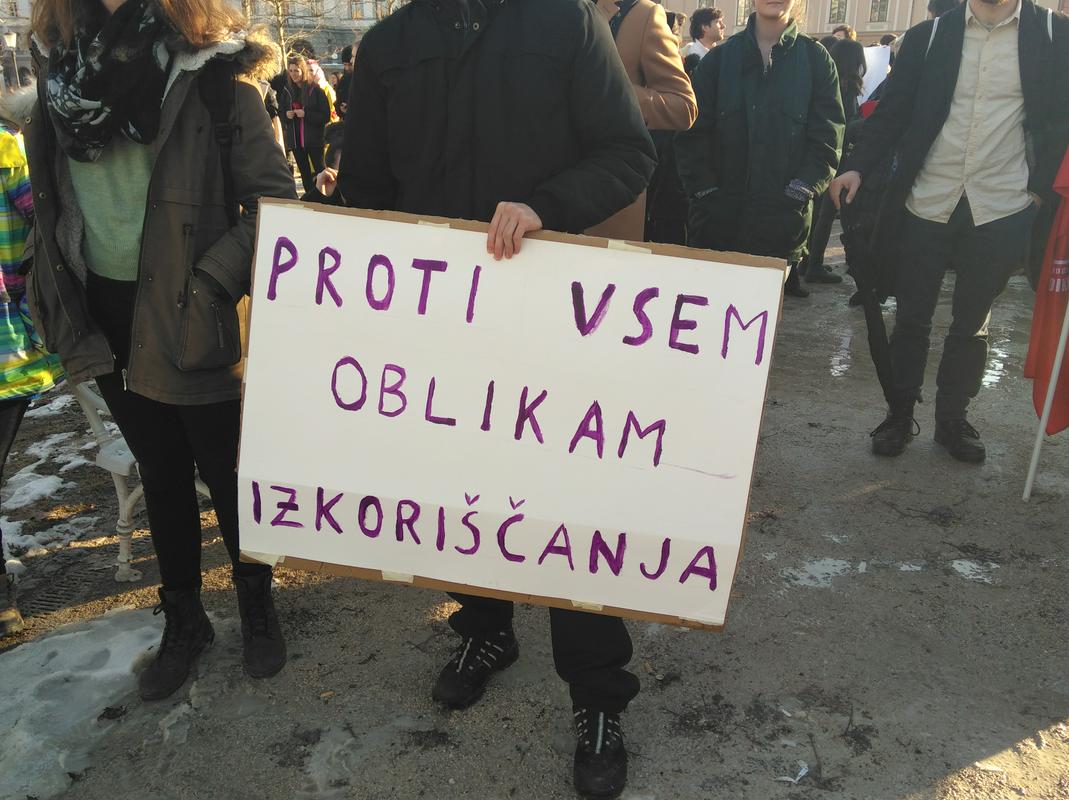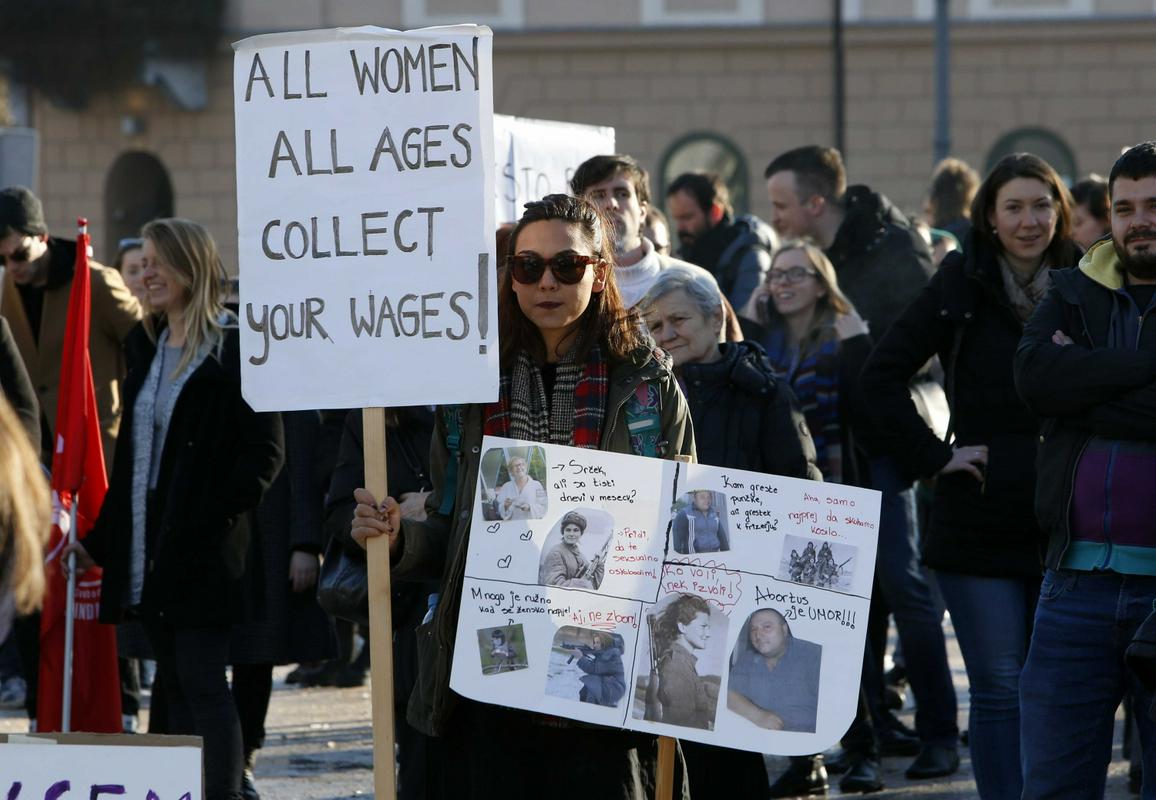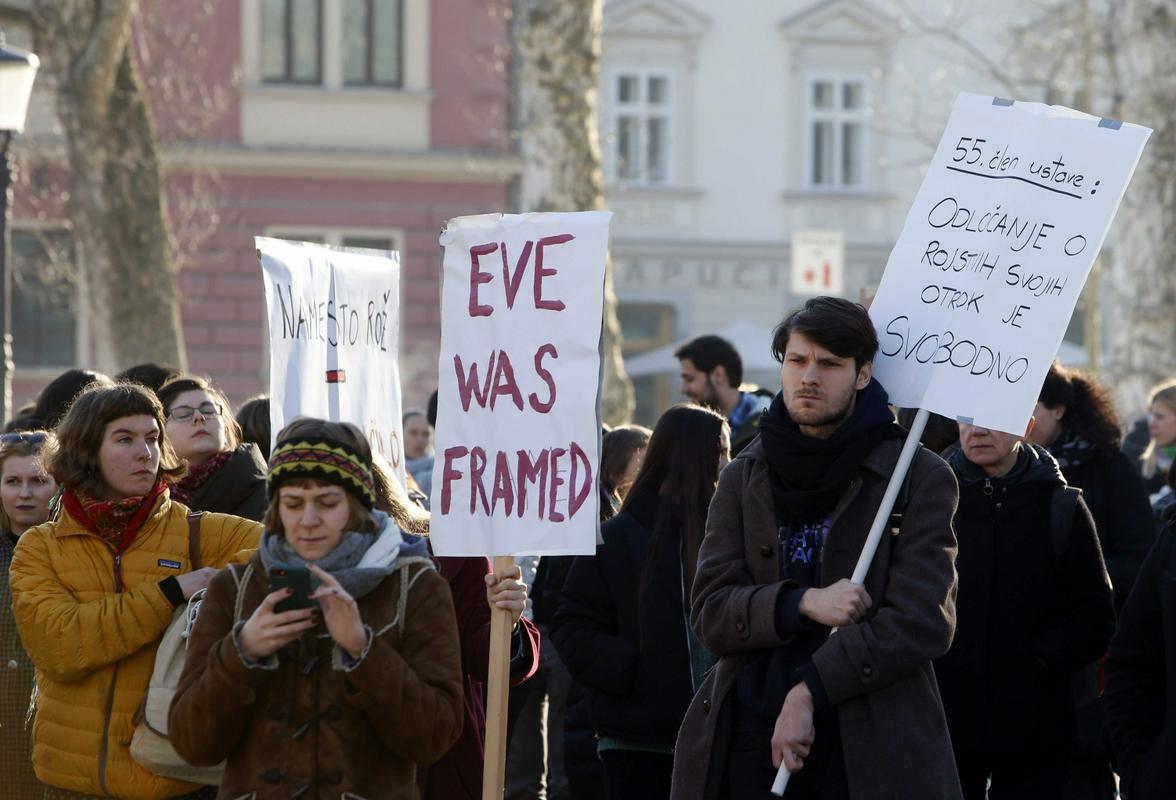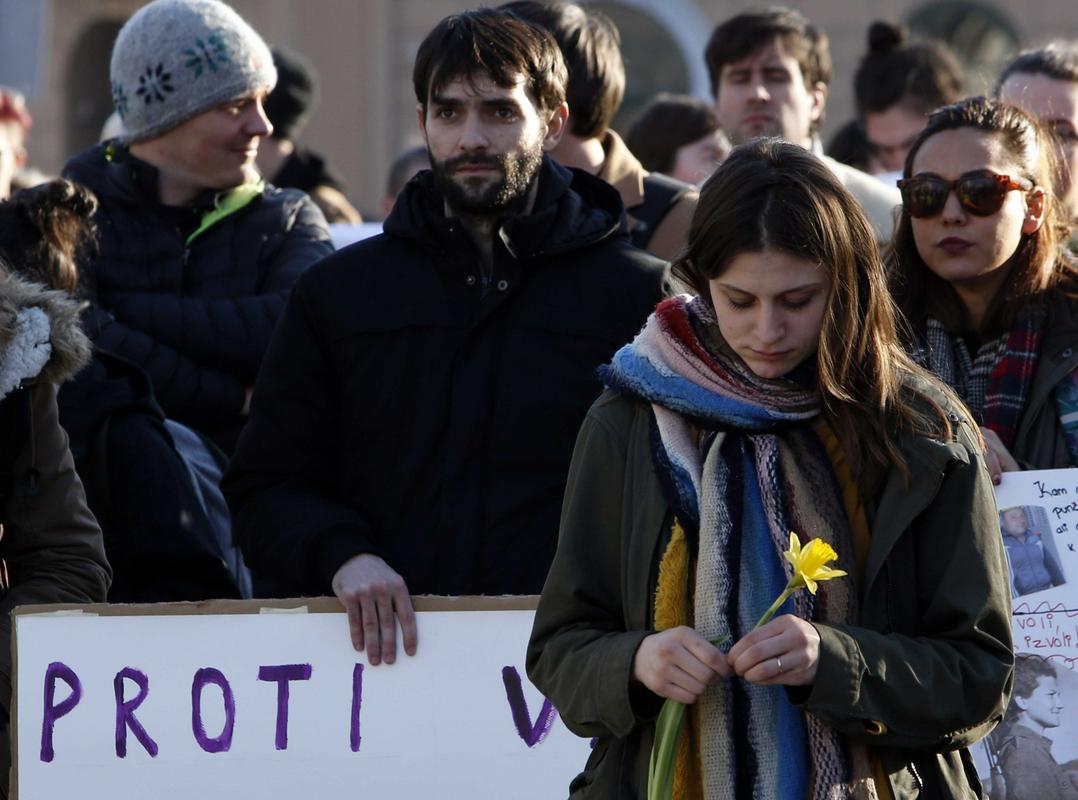
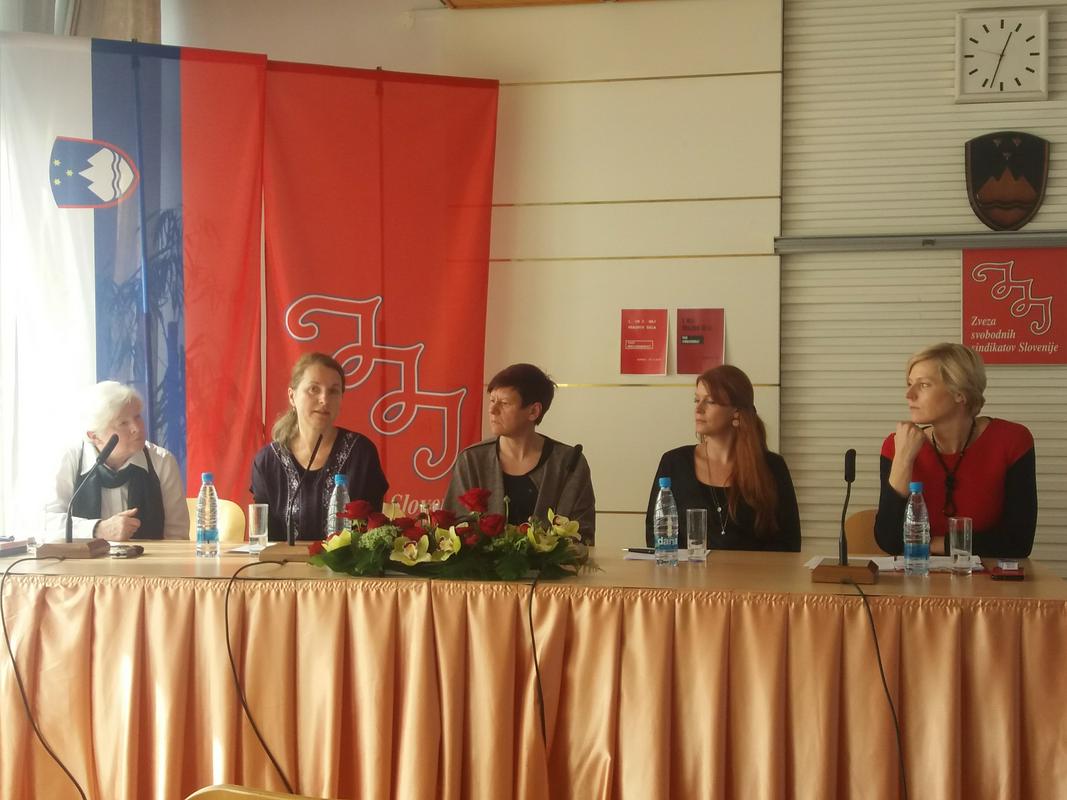
Women take the lion's share of responsibility for child care, but they are also involved in caring for their grandchildren and aging family members. Due to their longer anticipated life expectancy, it also falls upon them to take care of their aging husbands. "Many women are caught up in a vicious cycle of worry and fear," said Majda Hrženjak of the Peace Institute. The panel was organized by the Association of Free Trade Unions (ZSSS), Slovenia's largest union confederation, to mark International Women's Day on March 8.
Hrženjak was mainly referring to the fact that Slovenia still hasn't tackled the issue of long-term care, even though the country has a rapidly aging population. Because elderly care is expensive and because there are no public funds to pay for these services, seniors often rely on their families to provide care for them. It is women who bear the brunt of most of this care. "Informal caretakers save the public purse millions," said Hrženjak, adding that all this additional work increases stress levels and that being overworked makes these women sick.
More than 76 percent of informal caretakers are women, they are 55 years old on average, and on average they spend around 46 hours per week taking care of their relatives. 41 percent of them have jobs, meaning that some of them work more than 80 hours per week in total. On the other hand, many of these women quit their jobs to take care of their family members – a move that severely impacts their financial situation.
Sick leave plus vacation equals freedom
Teja Jarc of the Mladi plus (Youth Plus) trade union voiced her criticism about what she calls a system "that wants workers who are available 24/7 – and women don't fit that bill; thus, we're less likely to participate in the labour market." She also touched upon the situation of female freelancers, stressing that being self-employed gives one the illusion of freedom, "You can't call it freedom if you have to work from home 24/7. Freedom is the ability to take sick leave when necessary, and to get a paid vacation."
Jarc also said that precarious work forms affect women differently from men. Women still get asked questions around family planning in job interviews, even though such questions are illegal.




















































